Embed presentation
Downloaded 137 times
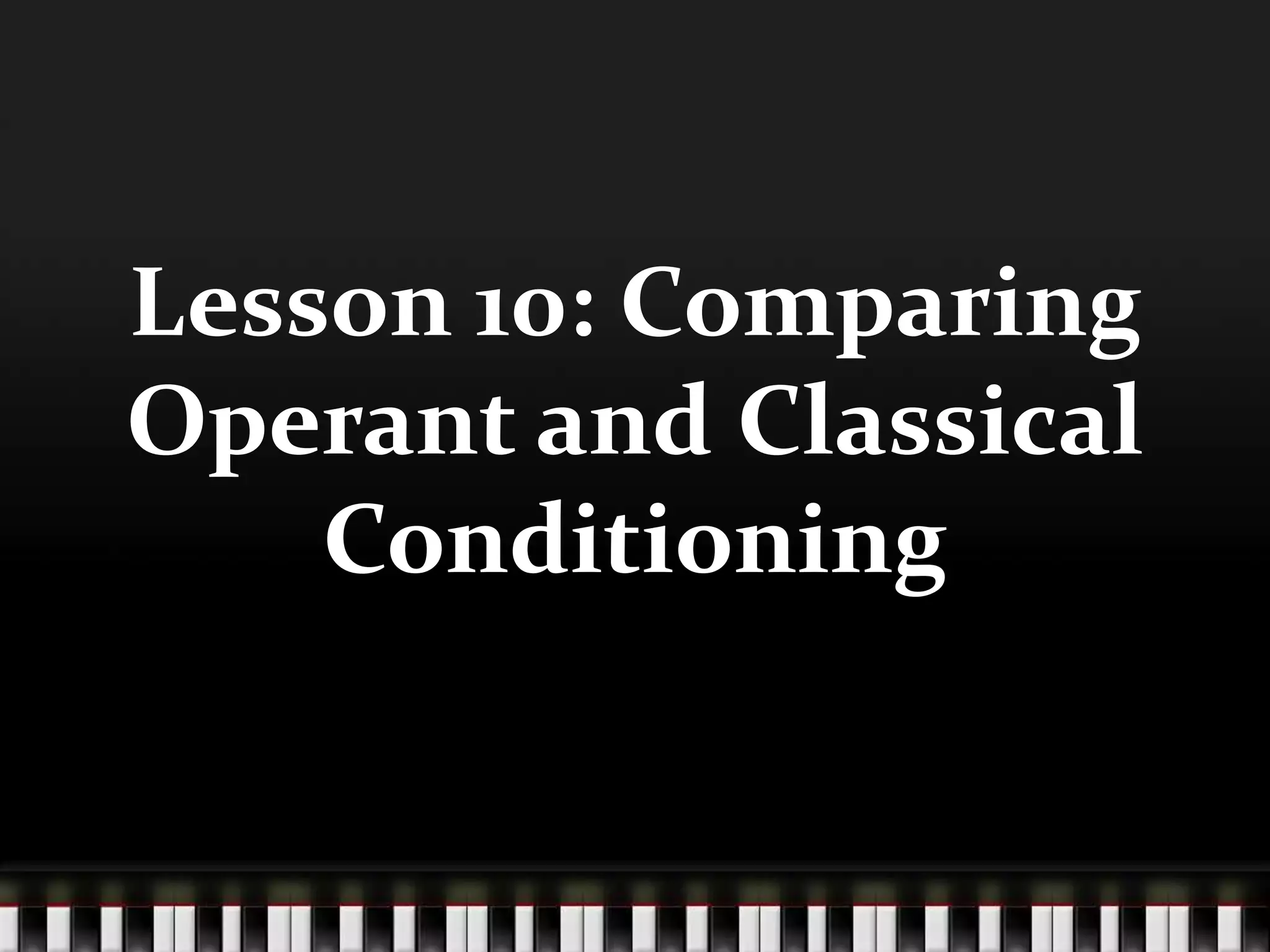
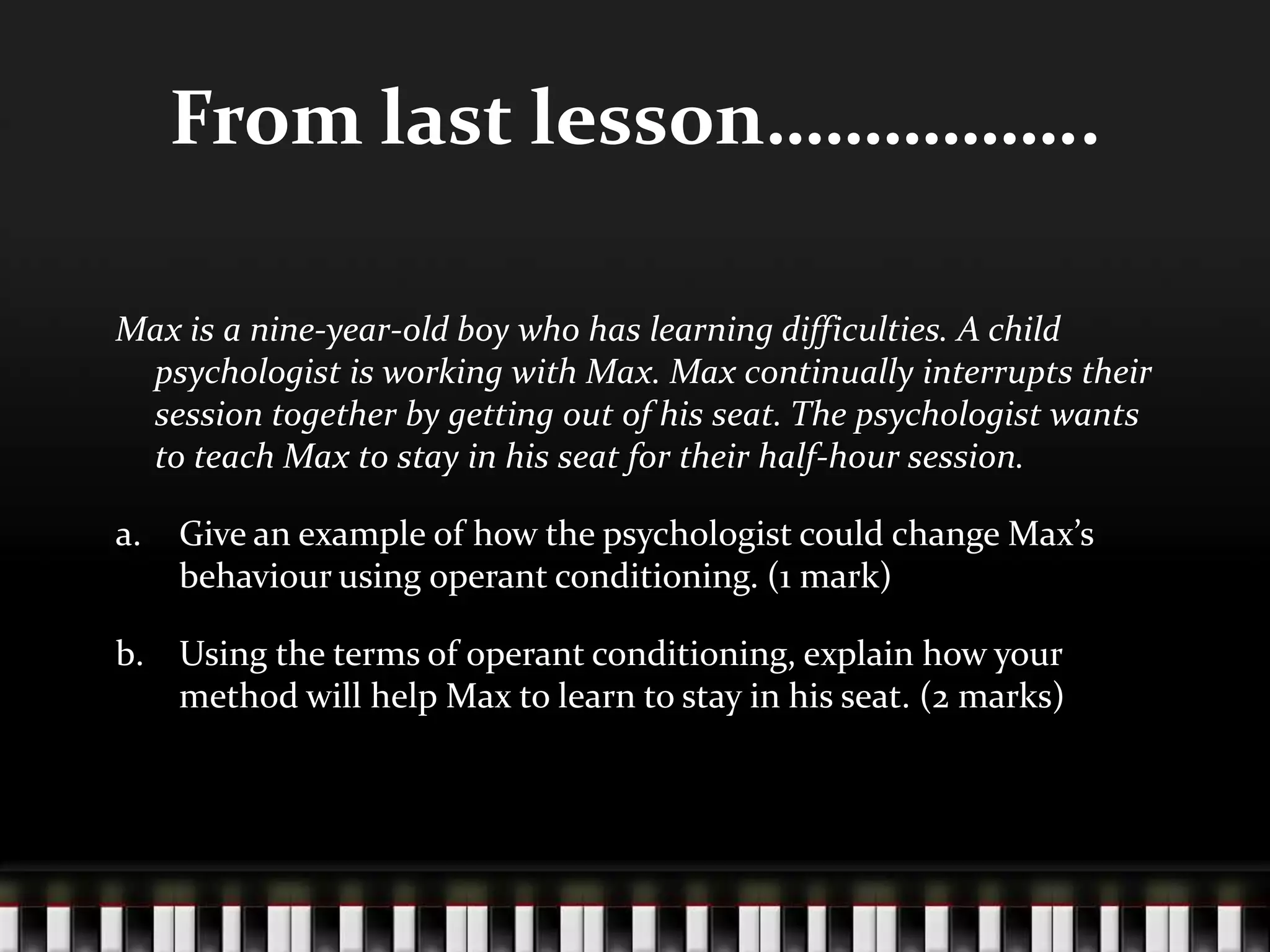
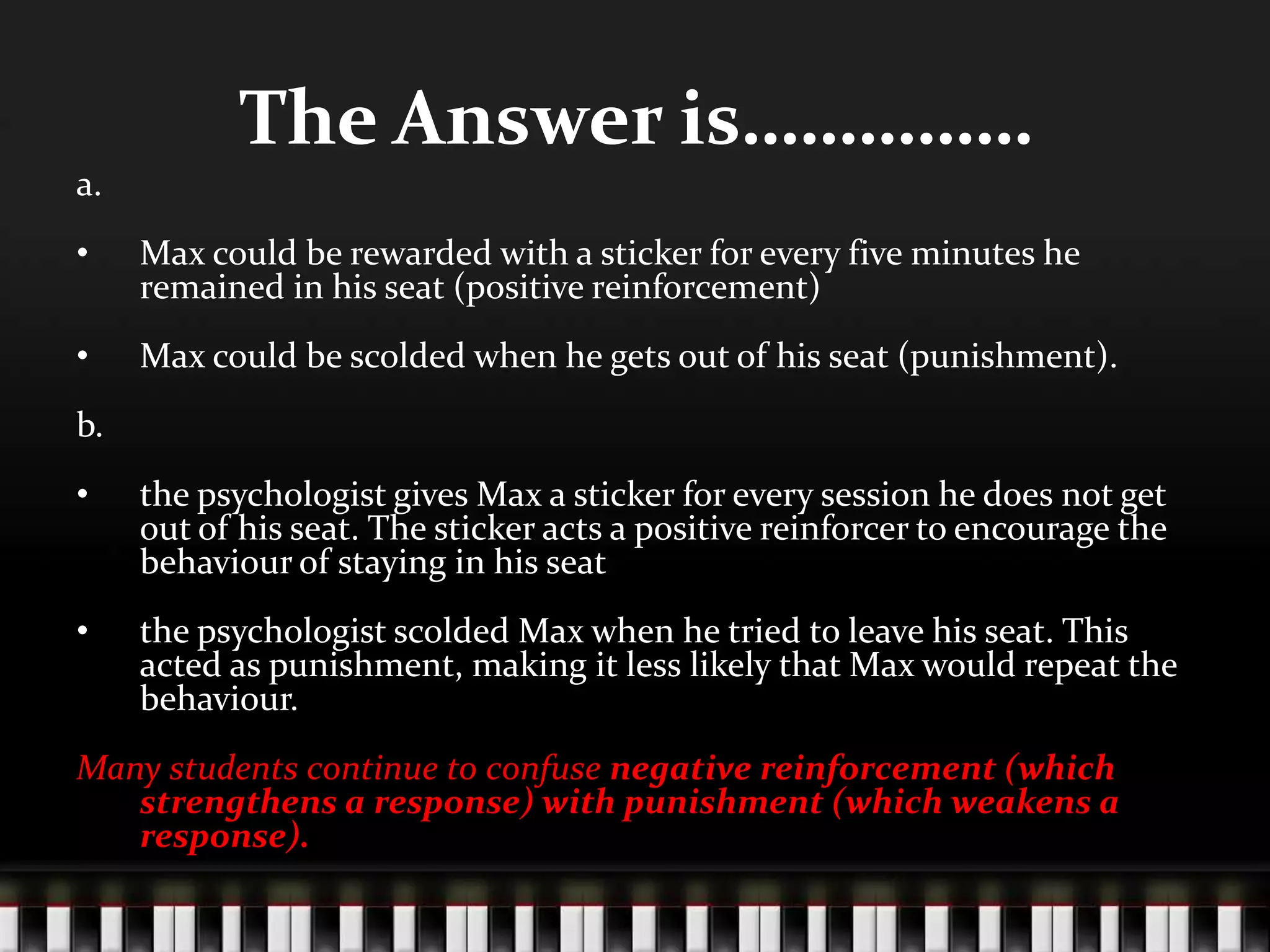
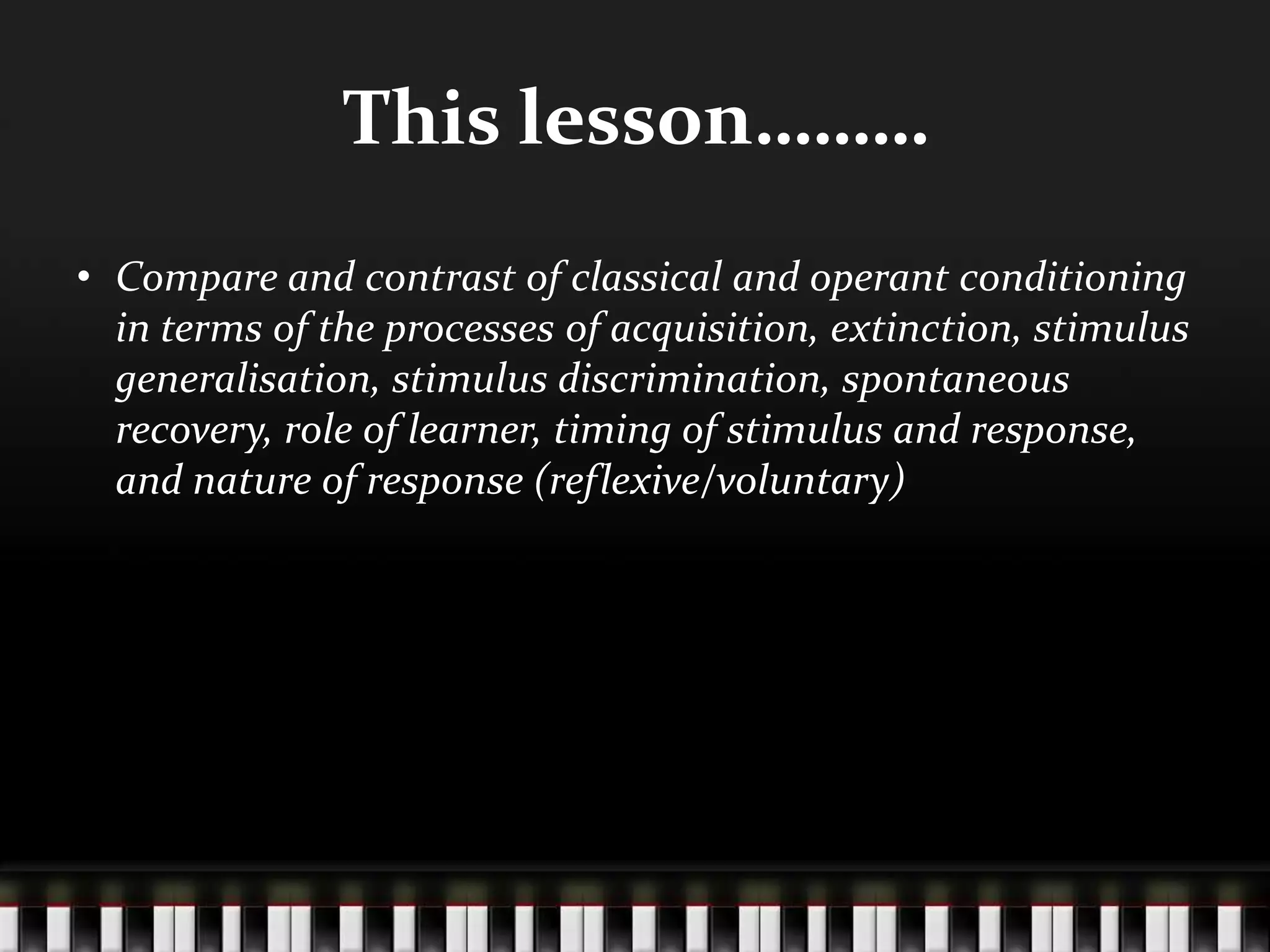
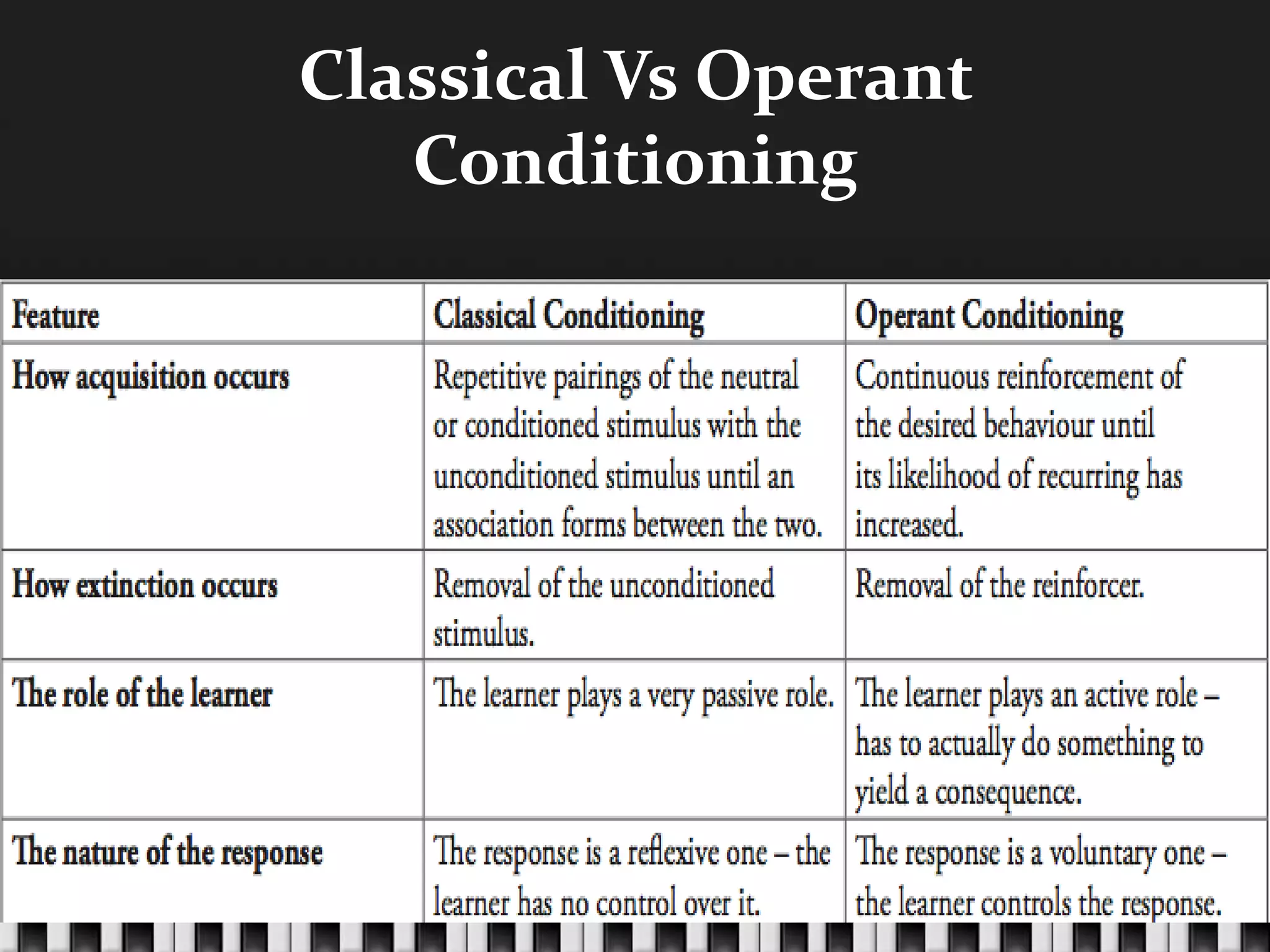
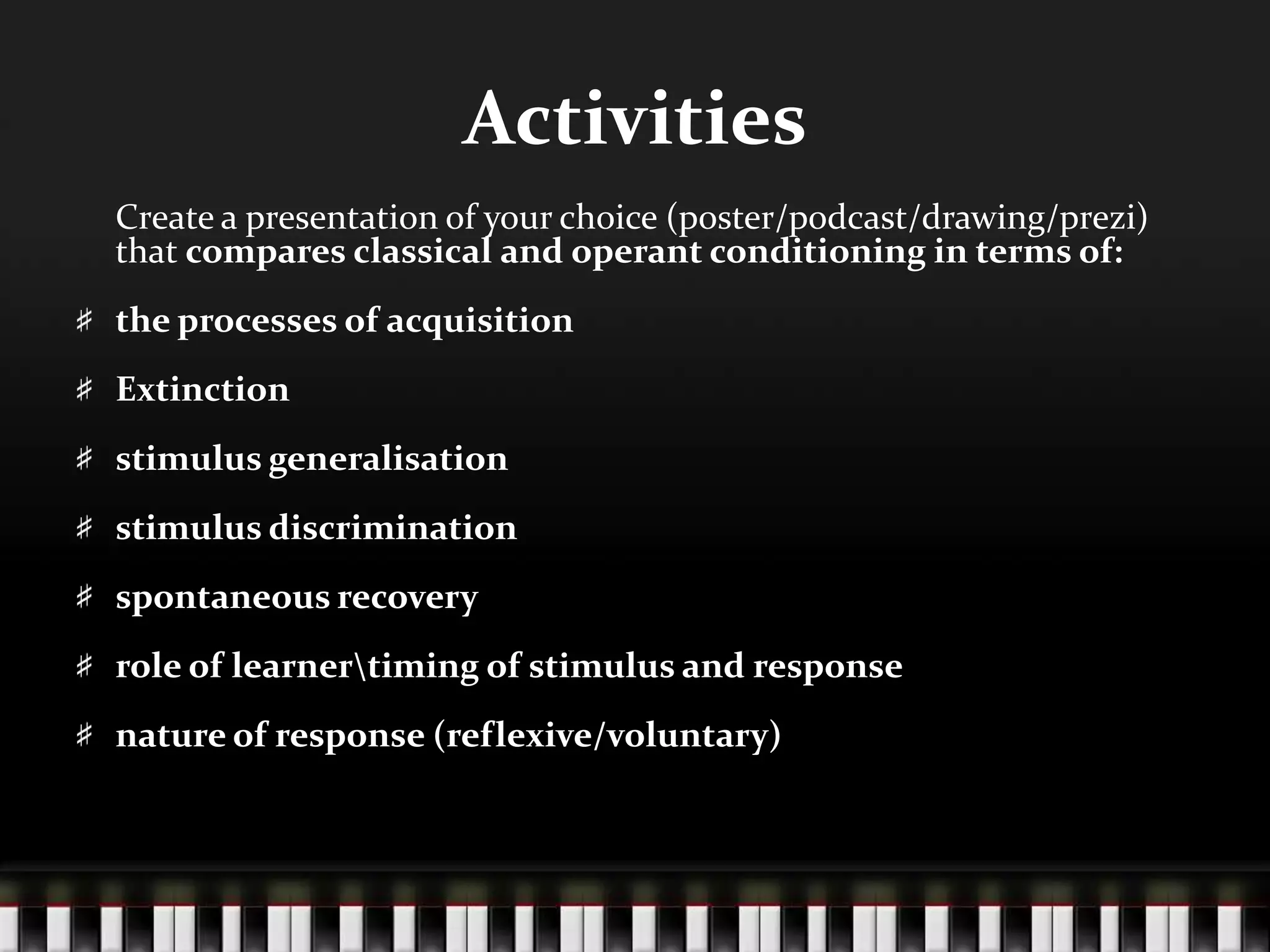
The psychologist is working with a 9-year-old boy named Max who has learning difficulties and continually interrupts their sessions by getting out of his seat. The psychologist wants to teach Max to stay seated for their half-hour sessions using operant conditioning. This could involve rewarding Max with stickers for remaining seated or scolding him when he gets up, both aimed at changing his behavior. The summary explains how operant conditioning works to encourage the desired behavior through positive reinforcement or discourage the unwanted behavior through punishment.





